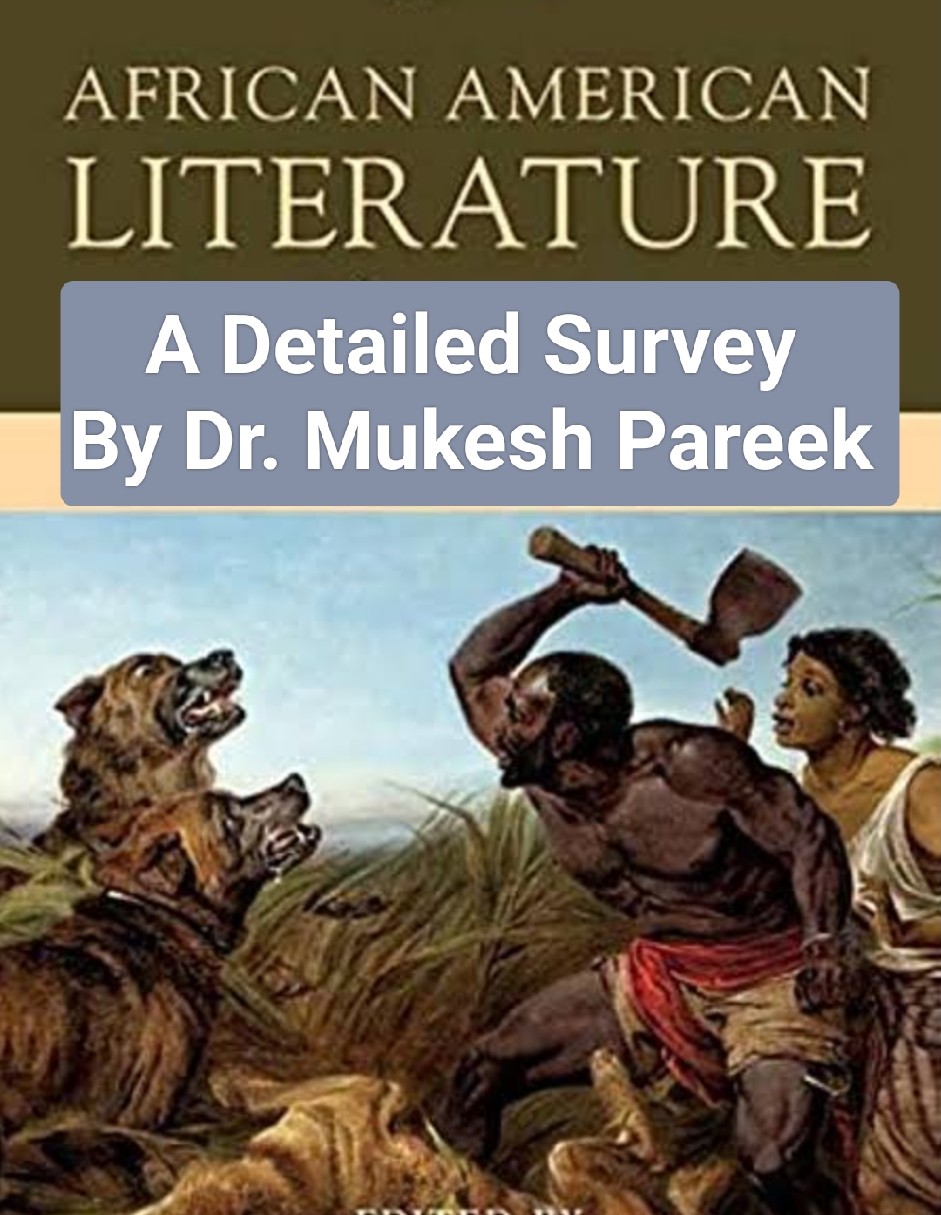AFRO -AMERICAN LITERATURE:A DETAILED SURVEY by Dr. Mukesh Pareek
In the mid-20th century, the Civil Rights Movement brought renewed energy and urgency to the Afro-American literary scene. Writers like James Baldwin, Ralph Ellison, and Richard Wright emerged as powerful voices, grappling with issues of racial discrimination, identity, and the complexities of the African-American experience.
James Baldwin, a celebrated essayist, playwright, and novelist, tackled themes of race, sexuality, and identity in his works. His novel "Go Tell It on the Mountain" (1953) explored the role of religion in the lives of African Americans.
African-American History and Heritage: Afro-American writers often explore the rich history and heritage of African Americans, celebrating the contributions of Black people to American society and highlighting the struggles and triumphs of the past. They delve into topics such as slavery, the Civil Rights Movement, the Harlem Renaissance, and the African diaspora, aiming to educate, preserve cultural memory, and foster a sense of pride in African-American history.
Cultural Identity and Community: Afro-American writers often explore the complexities of cultural identity and the importance of community in shaping individual and collective experiences. They delve into the traditions, customs, language, and cultural practices that define the African-American community. These writers celebrate the strength, resilience, and beauty of Black culture while also exploring the challenges of maintaining cultural identity in a predominantly white society.
Intersectionality and Gender Issues: Many Afro-American writers address intersectionality, recognizing that experiences of race, gender, and other social identities intersect and shape one's lived reality. They explore the unique challenges faced by African-American women, LGBTQ+ individuals, and other marginalized groups within the African-American community. These writers shed light on the complexities of multiple identities and the need for inclusivity and solidarity.
Personal and Familial Relationships: Afro-American writers often delve into personal and familial relationships, exploring themes of love, family dynamics, generational struggles, and the impact of societal pressures on individuals and their relationships. They provide nuanced portrayals of African-American families and challenge stereotypes, presenting a diverse range of experiences and relationships.
It is important to note that Afro-American writers are not limited to these concerns and explore a wide range of topics and genres. Their writings contribute to a multifaceted and evolving body of literature that continues to shape our underst
anding of the African-American experience.
The blog is precise yet highly informative and readable. Mukesh Sir's ability to facilitate diverse topics of literature ranging from fiction to non-fiction is absolutely appreciating.
ReplyDeleteThank you dear Hilal Habib sahab
ReplyDelete